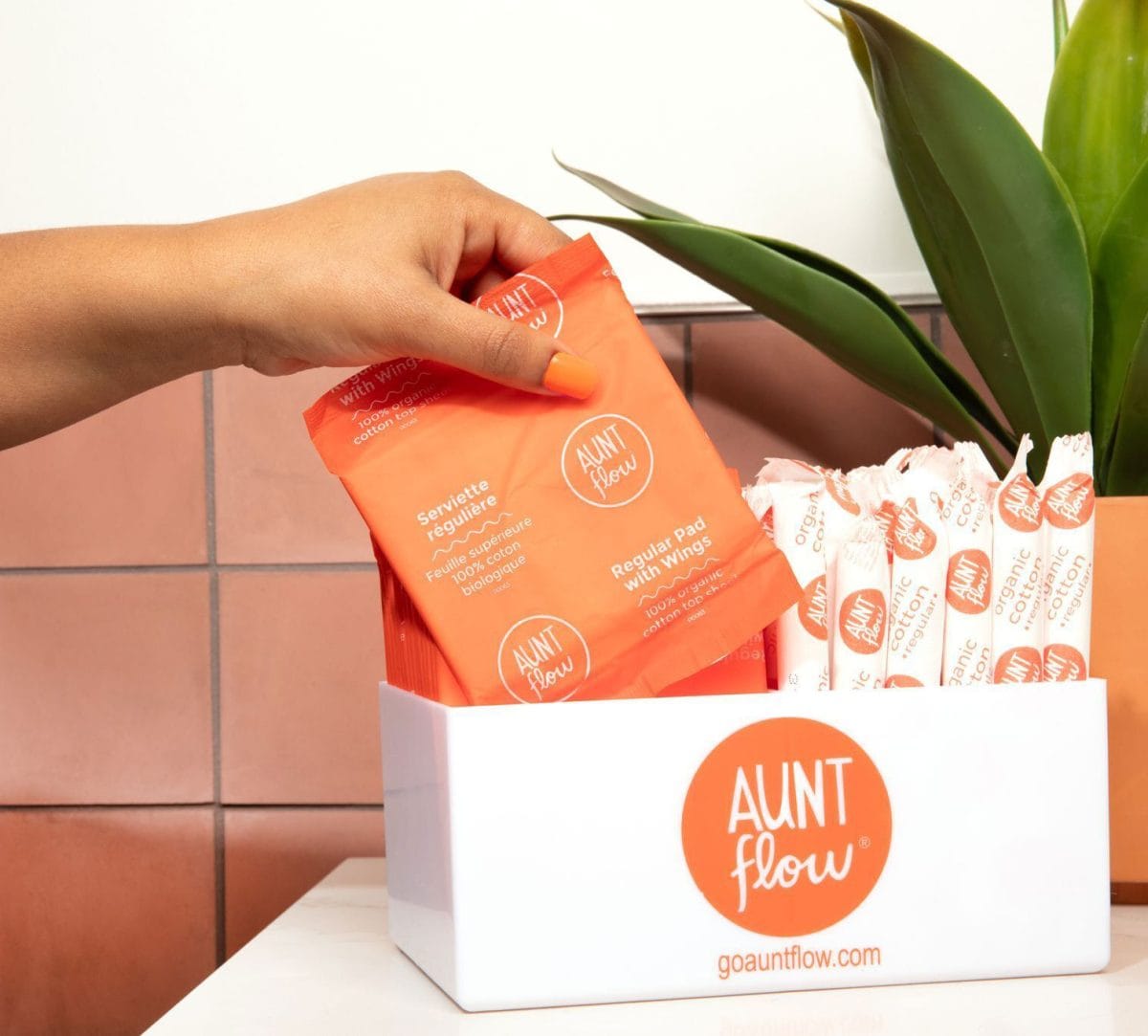In a time when mental health days and ergonomic chairs are becoming common workplace priorities, access to period products in offices remains glaringly overlooked. Yet for over half the population, menstruation is a monthly reality – one that doesn’t pause during work hours or school schedules. So why is it still treated as a private inconvenience instead of a public necessity?
- Why Workplaces Must Reconsider Period Product Access
- The Hidden Cost of Period Inequity in Public Institutions
- Plastic-Free, Toxin-Free, Human-First: A Better Way Forward
- A Case for Impact-Driven Distribution
- Why It’s Not Just a “Women’s Issue”
- Small Cost, Massive Return: The Economics of Office Period Care
- Creating A Respectful Rollout Strategy
- Creating Meaningful Change Through Simple Actions
There’s an unspoken but deeply felt discomfort in having to improvise with toilet paper, ask around for a tampon or sneak out mid-meeting due to a lack of supplies. It’s disruptive, unnecessary and entirely solvable.
Providing period care isn’t charity or luxury. It’s basic human respect, and the sooner institutions treat it as such, the better off employees, students and teams will be.
Why Workplaces Must Reconsider Period Product Access
Every office has its staples: hand soap, toilet paper and sanitiser. Yet the one item that’s still missing from most restrooms? Menstrual products. Here’s why that needs to change – urgently.
- Increased Productivity: When employees aren’t worried about managing their period discreetly, they stay focused and present.
- Retention and Satisfaction: Inclusive facilities foster a sense of safety and dignity, contributing to higher morale and better retention.
- Brand Alignment: For companies preaching social responsibility, this is a low-cost, high-impact action that shows they mean it.
The Hidden Cost of Period Inequity in Public Institutions
Lack of access doesn’t just affect individual comfort. It shapes attendance, performance and equity. In schools, students who menstruate are often forced to miss class or compromise their hygiene. In public facilities, the absence of products reinforces exclusion.
Let’s consider the broader consequences:
- School absenteeism: UNESCO reports that 1 in 10 girls in Africa miss school during their periods, but absenteeism is also rising in Western institutions due to stigma and inadequate access.
- Workplace embarrassment: Adults who menstruate report experiencing shame, distraction and fear of staining clothing during their cycle at work.
- Economic disparity: Lower-income individuals bear the brunt of poor access, relying on unsafe or unsanitary alternatives.
Public access to period care directly influences dignity, safety and equality. Making these products available doesn’t just fix an inconvenience. It removes a systemic barrier.
Plastic-Free, Toxin-Free, Human-First: A Better Way Forward
Let’s talk about quality. The average sanitary pad contains up to 90% plastic and tampons are often treated with synthetic fragrances or bleaches. These additives are not only harmful to the environment. They raise serious health concerns. The alternative? Period care that’s plastic-free, toxin-free and ethically made.
Here’s what modern, sustainable period products offer:
- Compostable pads and applicators that break down in months, not centuries
- Organic cotton tampons with no chlorine, dyes or pesticides
- Reusable options like menstrual cups or cloth pads for those who prefer zero-waste lifestyles
- Plastic-free wrappers and packaging, reducing both individual and institutional footprints
Choosing sustainable products doesn’t require sacrifice. It’s a chance to align wellness, ethics and care without greenwashing or gimmicks.
A Case for Impact-Driven Distribution
It’s not just what you distribute but how. Thoughtful access includes more than placing a few pads in a drawer. It’s about building a culture of openness, dignity and education.
Here’s how impactful distribution works:
- Visible Placement: Accessible dispensers in all restrooms, including gender-neutral and male facilities (for trans and non-binary users).
- Educational Integration: Partnering with HR or school boards to provide period health education, combating stigma and misinformation.
- Impact Metrics: Tracking usage and satisfaction to inform better product choices and quantify internal change.
- Community Reinforcement: Donating equivalent supplies to underserved populations for every office box stocked.
Why It’s Not Just a “Women’s Issue”
Providing period products in the office is a simple, effective way to improve comfort and support for staff. It helps reduce unnecessary stress, avoids disruption during the day and shows thoughtful attention to everyday needs. When organisations take small, practical steps like this, they create a more comfortable and efficient environment for everyone.
Creating inclusive environments means:
- Stocking a range of products, not just pads
- Placing products in all restrooms, not just “women’s”
- Using neutral language on dispensers and packaging
- Encouraging open conversations about menstrual care in DEI programming
Small Cost, Massive Return: The Economics of Office Period Care
Let’s address the budget concern. You can fully stock an office of 25 people for an entire month for less than the cost of a catered lunch. Here is a breakdown:
- Subscription plans start at around $40–$80/month, depending on the product mix and volume
- Tax-deductible expense for corporate wellness or DEI programming
- Reduces lost productivity, absenteeism and turnover, especially for menstruators in leadership roles
Compared to the hidden costs of neglecting period needs, such as mental stress, absenteeism and even turnover, the value is clear. This is not just about compassion. It’s about common sense.
Creating A Respectful Rollout Strategy
If your company or institution is looking to introduce period products in the office, here’s a proven rollout plan:
- Start with a Survey: Understand what your team or students need most.
- Choose Ethical Suppliers: Look for brands offering plastic-free, toxin-free, mission-aligned products.
- Stock Thoughtfully: Use discreet, refillable dispensers placed in all restrooms.
- Add Education: Run internal awareness campaigns or short workshops.
- Measure Impact: Track usage, feedback and internal morale shifts.
Change starts with asking one question: Are we doing enough for the people who bleed?
Creating Meaningful Change Through Simple Actions
Offering period products in the office isn’t a grand gesture. It’s a basic act of respect. When organisations choose to provide accessible, plastic-free and toxin-free menstrual care, they’re not just meeting a physical need – they’re sending a message.
Everyone deserves to feel seen, supported and safe in their environment. These choices build trust, foster belonging and reflect a workplace that values real wellbeing. It’s a small shift with lasting impact and it starts with what we choose to make available in every bathroom.

















